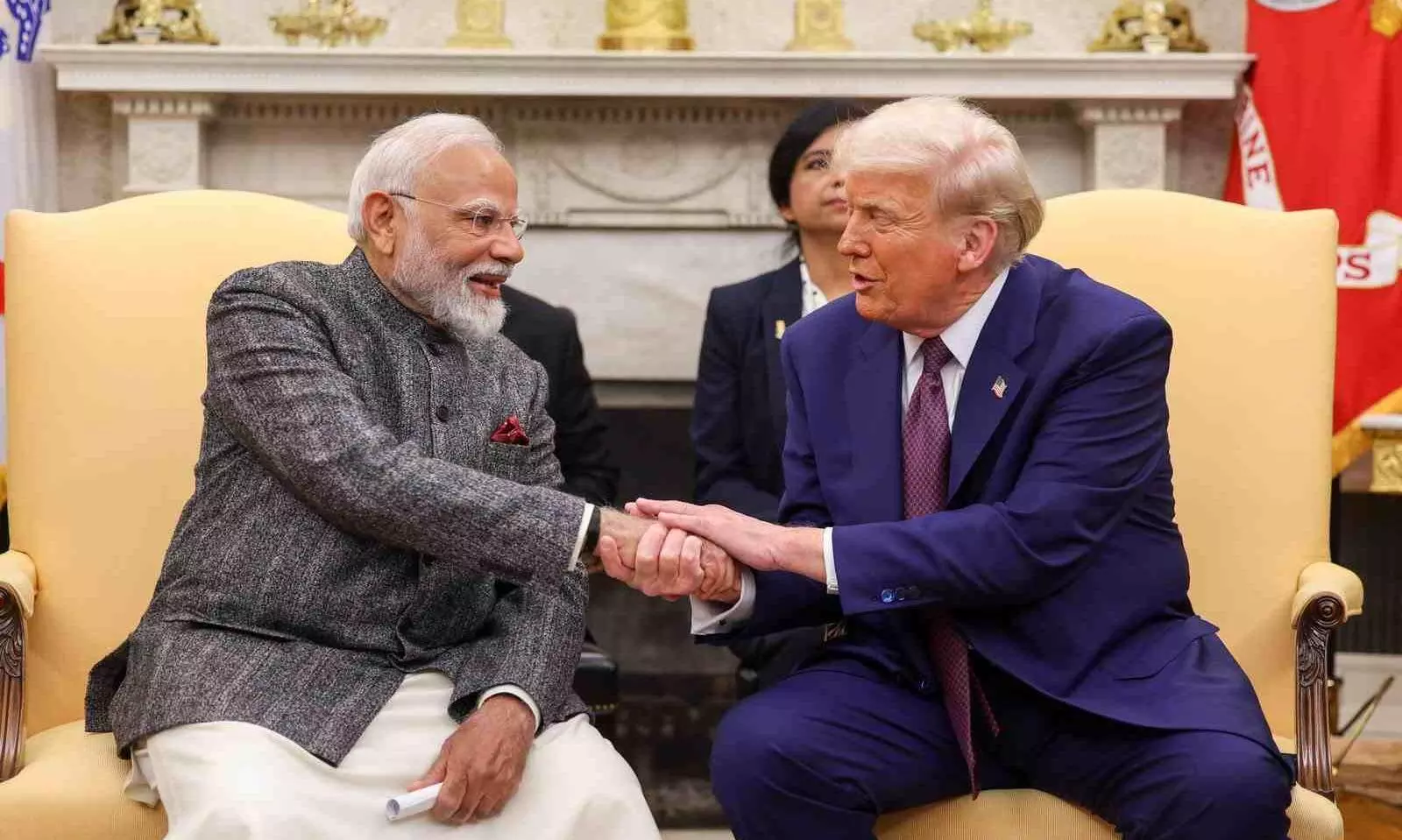
Trump’s 'personal pique' led to 50 per cent tariffs on India, says Jefferies
Jefferies stated in its report that the 50 per cent tariff on India was a result of Trump's frustration at being unable to mediate a military conflict between India and Pakistan

US President Donald Trump’s decision to impose 50 per cent tariffs on India was an outcome of his “personal pique” at not being allowed to act as a mediator in the military conflict between India and Pakistan, stated Jefferies, an American multinational investment bank, in a report.
‘Trump hoped to mediate’
According to media reports, Jefferies further stated that President Trump was hopeful that he would get to intervene in the wake of the four-day military conflict between India and Pakistan following New Delhi’s Operation Sindoor that was launched in response to the Pahalgam terror attack that left 26 civilians dead.
"Tariffs (on India) are primarily the consequence of the American president's 'personal pique' that he was not allowed to play a role in seeking to end the long-running acrimony between India and Pakistan," stated the report by Jefferies as quoted by Hindustan Times.
Also Read: Xi Jinping wrote a 'secret letter' to President Murmu amid trade war with US: Report
‘India’s refusal of third-party mediation’
The report further stated that India’s stand of not accepting any third-party mediation in its relations with Pakistan has remained a “red line” even at the cost of depriving President Trump of his opportunity to win the Nobel Peace Prize.
“India has never accepted third-party intervention in its relations with Pakistan, and this remains a 'red line' despite the economic costs of depriving the 47th American president of one of his opportunities to win the Nobel Peace Prize,” stated the report.
The report further states that agriculture remains one of the key irritants in Indo-US ties as successive Indian governments, including the incumbent one, have refused to open up the agricultural sector to imports due to the “severe consequences” it would lead to for millions of people.
Also Read: Why India must take Brazil’s lead to save Tiruppur from impact of Trump’s tariffs
Trump’s surprise ceasefire announcement
Following the April 22 Pahalgam attack. India under Operation Sindoor launched precision strikes on nine terror infrastructures across Pakistan-occupied Kashmir and mainland Pakistan, eliminating at least 100 terrorists.
Pakistan responded with a large-scale drone and missile attack targeting Indian military and civilian infrastructure, but it was thwarted by India’s air defence systems that intercepted most of the projectiles and prevented any severe damage.
India responded with missile strikes, including the BrahMos, on key Pakistani airbases. However, Trump, in a surprise announcement on May 10, announced a US-mediated ceasefire between India and Pakistan, which New Delhi has repeatedly refuted, stating that the ceasefire agreement was reached after the Pakistani DGMO reached out to his Indian counterpart.

